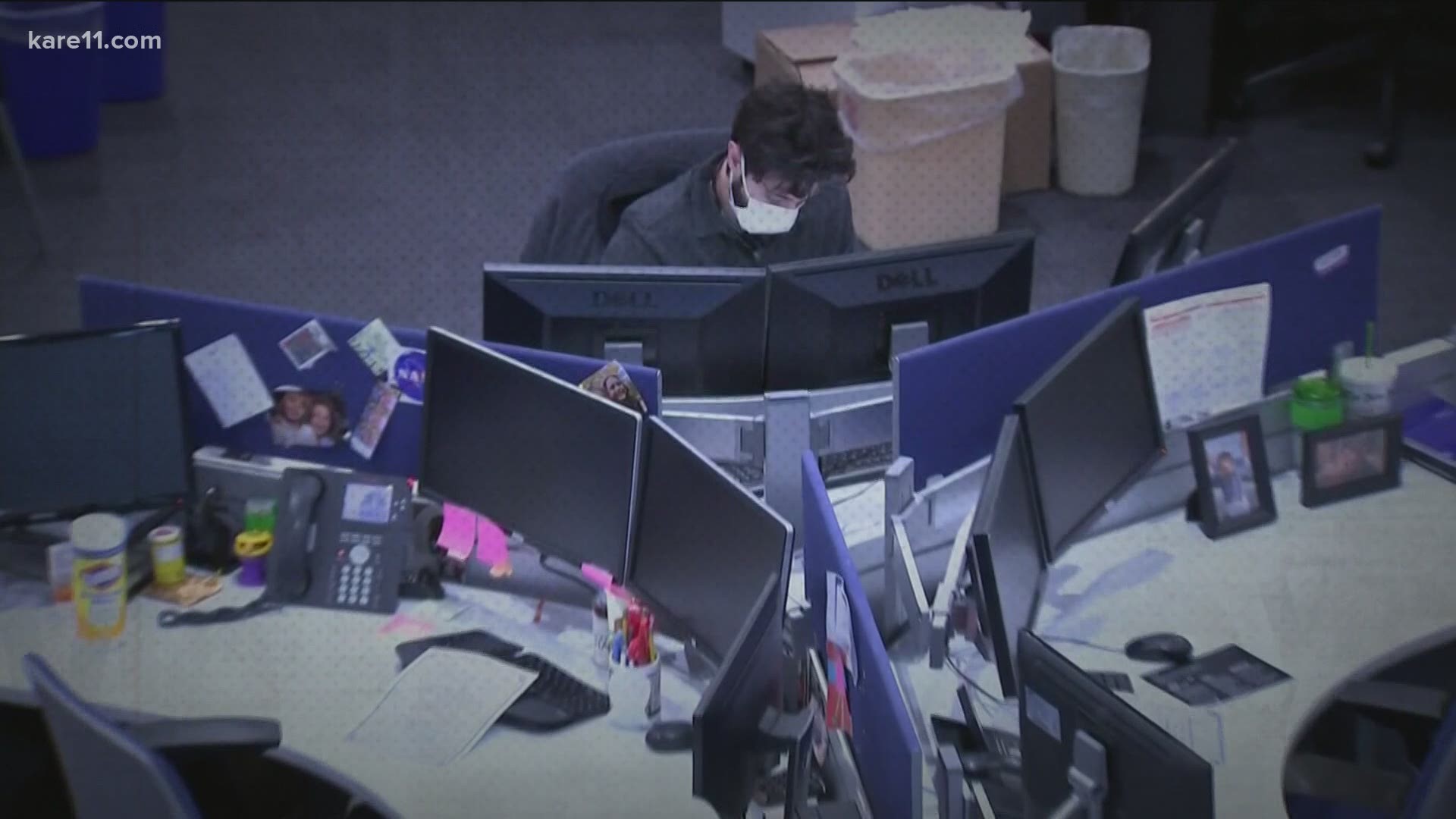MINNEAPOLIS — This year has not been normal, and for most of us Thanksgiving won't be either.
No one is happy about that fact.
Not you, or me, or grandma....or your boss.
And speaking of your boss... an interesting conversation is happening as this holiday approaches, about what your boss has a right to know about your holiday plans.
In any other time, the boss asking around about your Thanksgiving would hardly be a topic of a news story, but this year is not any other time
"It's kind of a very grey area," said attorney Davis Senseman. Senseman waded around in employment law with us for tonight's topic. While the area is historically gray, in Minnesota it may be less so because of Emergency Executive Order 20-99.
This order went into effect last Friday night, and says social gatherings are prohibited outside of members of your own household. This refers to the people you live with every day.
'Prohibited," which means anyone who willfully violates this order is guilty of a misdemeanor.
Which means "this" argument won't fly with management.
"You could try to say, well, you can't tell me what I can do, that's lawful. But you also get into the argument of, is it lawful right now," Senseman said.
So how about beyond that? Like if you plan to not follow the urging of the CDC to not travel?
Senseman says it's best to be honest with your work about that as an employer is responsible for all of it's employees, not just one
One thing your employer does need to do, however, is apply any policy it lays out on the coronavirus to employees across the board.
What you need to do, is make sure policies are being enforced evenly among employees.
Senseman says it's best for your boss to make it clear what is expected of staff prior to Thursday (Thanksgiving) and then if one person, or more than one goes against it, they handle it case by case.
"You are trying to figure out what to do with this person who lets say maybe violated a policy or went against what every public health official is saying, and you are trying to figure out how to handle that, " Senseman reasons. "But you also have to take the consideration of keeping rest of staff and if you are a customer facing business, safe."
All of this is contingent on employment laws in your state, and those vary quite a bit.

